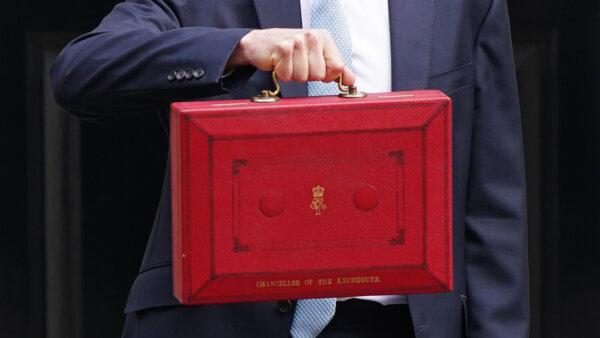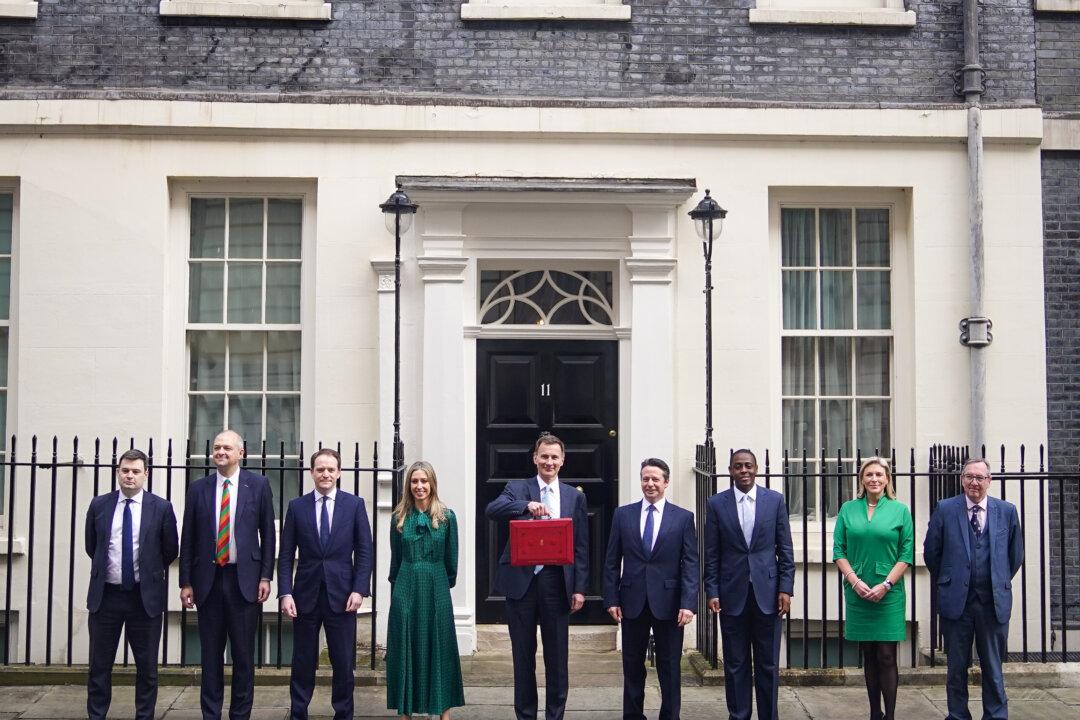Chancellor of the Exchequer Jeremy Hunt has confirmed a 2 pence in the pound cut in national insurance contributions and also announced plans to abolish non-dom tax status, as he delivered his last budget before the general election.
Mr. Hunt told the House of Commons on Wednesday the government was sticking to its plan with a Budget for long-term growth and added, “It delivers more investment, more jobs, better public services, and lower taxes.”
He said: “Dynamism in an economy doesn’t come from ministers in Whitehall. It comes from the grit and determination of people who take risks, work hard, and innovate. Not government policies but people power.”
“It is to unleash people power that we today put this country back on the path to lower taxes,” Mr. Hunt added.
The 2 pence cut in national insurance contributions would save the average worker around £450 a year.
But the Institute for Fiscal Studies (IFS) said it would not prevent the tax burden rising to a record level—37 percent of GDP—by 2028–2029.
The Budget was the Conservative government’s last chance to influence the economy and change the tax burden before an election which could be called by Prime Minister Rishi Sunak in May, in the autumn, or as late as January 2025.
The economy slipped into a “technical recession” at the end of 2023 and the Tories are 20 points behind in the opinion polls.
‘We Need a More Productive State, Not a Bigger State’
He said: “This demonstrates that the way to improve public services is not always more money or more people. We also need to run them more efficiently. We need a more productive state, not a bigger state.”The chancellor said inflation was at 11 percent when he took over in October 2022 and was now at 4 percent and he said the Office for Budget Responsibility forecast it would fall below the 2 percent target in a few months’ time.
There will be cuts to public spending plans to fund the reductions in national insurance contributions, although the budgets of the NHS and the Ministry of Defence will be protected.
IFS Director Paul Johnson wrote on social media platform X that the chancellor’s plan to keep the growth in day-to-day public spending at 1 percent in real terms would mean some public services would be cut by around £20 billion per year by 2028.
One of the biggest surprises in the Budget was Mr. Hunt’s announcement that he was scrapping non-dom status altogether, rather than just restricting it as had been predicted.
In April 2022, before he was prime minister, Labour queried why Mr. Sunak’s wife, Akshata Murty, had claimed non-dom status.
Mr. Hunt said, “We will replace the non-dom regime with a modern, simpler, and fairer residency-based system.”
He said: “We will put in place transitional arrangements for those benefiting from the current regime. That will include a two-year period in which individuals will be encouraged to bring wealth earned overseas to the UK where it can be spent and invested.”
Ms. Murty—whose father is a billionaire—is an Indian citizen and held non-dom status, which meant she did not pay tax on her foreign income because her permanent home was considered outside of the UK.

Mr. Hunt also announced a deal for the government to purchase from Japanese conglomerate Hitachi the sites of two defunct nuclear power stations, at Wylfa in Anglesey and Oldbury in Gloucestershire, for £160 million, sparking speculation on social media they would be used as the sites for generating more nuclear power.
- A new British ISA, which would allow £5,000 annual investments in UK equity.
- Duty on alcohol will be frozen until April 2025, benefiting 38,000 British pubs.
- Fuel duty will be frozen for another 12 months, benefiting millions of motorists.
‘Chuckle Brothers of Decline’
The leader of the Labour Party, Sir Keir Starmer, described Mr. Sunak and Mr. Hunt as being “the Chuckle Brothers of decline,” and said the Tories were “stubbornly clinging to the failed ideas of the past.”Sir Keir said: “They lost control of the economy, they sent interest rates through the roof, they made working people pay.
“They should be under no illusion. That record is how the British people will judge today’s cuts, because the whole country can see exactly what is happening here. They recognise a Tory con when they see it, just as they did in November. Give with one hand, take even more with the other,” he added.
Rebecca Long-Bailey, a Labour MP and former shadow cabinet minister under Jeremy Corbyn, told the BBC the Budget contained only “election gimmicks” and gave disproportionate tax cuts to the wealthy.







